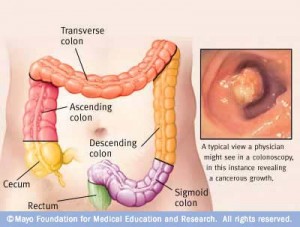An aspirin a day keeps the cancer surgeon away?
Aspirin in our lives
After a long hard day, you come home and you are ready to relax. But beforehand, you want to alleviate you headache first. Naturally you pop up an aspirin. Aspirin is also known as acetylsalicylic acid and it is commonly used as a painkiller, anti-flammatory drug and antipyretic to reduce fever. However, many people underestimate the power of aspirin. The truth is that aspirin can play huge roles in improving our health, such as preventing heart attacks, strokes and bowel cancers.
Lynch Syndrome
In a recent study done by Newcastle University’s professor Dr. Sir John Burn, two pills a day for two years reduced the incidence of bowel cancer by 63% in a group of 861 at-risk patients. All the patients had Lynch syndrome, which is also known as HNPCC( Hereditary nonpolyposis colorectal cancer ). This syndrome is a genetic condition which has a high risk of bowel cancer as well as other cancers in stomach, ovary and small intestine. This increased risk for these cancers is because patients with this syndrome have genes that fail to detect and repair damaged DNA. Since cancer is made of cells that grow uncontrollably, if your body cannot fix damaged DNA, you are more likely to develop cancer in many parts of the body.
The research
What is marvelous about this new study done by Sir John Burn is that it provided an overwhelming evidence of a way that patients with Lynch Syndrome can reduce the development of bowel cancer. Over the two years, those who were given 600 milligrams of aspirin every day developed bowel cancer 63% less than the patients who simply took the regular medications for at least two years.
Therefore Sir John recommends that “people who’ve got a clear family history of, particularly, bowel cancer should seriously consider adding low dose of aspiring to their routine and particularly those people who’ve got a genetic predisposition.”
The ugly side effects
Although aspirin may help to prevent developing bowel cancer, it has some potential deadly side effects. Some of them include gastrointestinal bleeding, angioedema (swelling of skin tissues), ulcers, and strokes caused by aspirin. Therefore, one of the questions that arise is that whether healthy people with no family risks should take aspirin to prevent cancer development. Sir John said that it was a “finely balanced argument” and that he decided the risks were worth it for him.
“I think where we’re headed for is people that are in their 50s and 60s would look very seriously at adding a low dose aspirin to their daily routine because it’s giving protection against cancer and heart attack”
In a way, aspirin is a double edged sword. It can be hugely beneficial for those who have lynch syndrome but it could also bring the unwanted side effects. Even though this may be a breakthrough in preventing cancer development, we must remember that it is us, the patients, who have the power to choose what is the best for ourselves. Therefore, we must educate ourselves and decide what is the most suitable option for our bodies.
More Resources:
The BBC News articles :
Daily aspirin ‘blocks bowel cancer’ by James Gallagher
http://www.bbc.co.uk/news/health-15475553
Aspirin : What are the risks and benefits?
http://www.bbc.co.uk/news/health-11936078
References
Burn,John, et.al. Long-term effect of aspirin on cancer risk in carriers of hereditary colorectal cancer: an analysis from the CAPP2 randomised controlled trial. (2011 )The Lancet . DOI: 10.1016/S0140-6736(11)61049-0
http://www.thelancet.com/journals/lancet/article/PIIS0140-6736(11)61049-0/abstract



November 5th, 2011 at 4:22 pm
It is very encouraging to hear that taking two pills a day of aspirin can reduce the incidence of bowel disease by 63% in people at risk for Lynch syndrome. It is especially helpful that aspirin is so readily available, which makes this solution incredibly viable!
I’ve always thought of aspirin as pain medication. For people in their 50s and 60s who take aspirin to prevent against cancer and heart attack, would taking pain medication when a patient didn’t feel pain make this drug useless for pain medication when it was needed for this purpose in the future? (i.e. your body would get used to taking this amount of aspirin and so when you felt pain, you would need to double or triple the dose for it to have pain-alleviating effects?)
November 7th, 2011 at 12:38 pm
This is very interesting. I’ve always wondered when a new drug comes out that is used to perform a specific function in the body (in this case with aspirin, pain relief and anti-inflammatory), how every possible effect on the body could have been tested. Because clearly when you ingest a tablet it is going to be absorbed into your bloodstream and have effects throughout your entire body.
I wonder if new uses for other current drugs will be found.